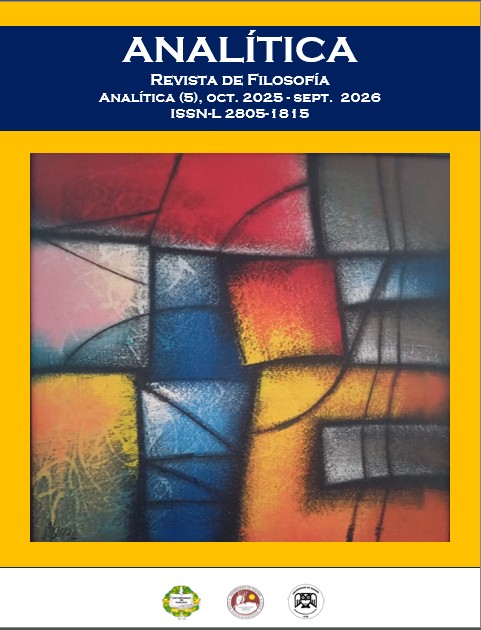

Copyright (c) 2025 Analítica

This work is licensed under a Creative Commons Attribution-NonCommercial-ShareAlike 4.0 International License.
Although Liar-type conundrums –traditionally considered sophistry– do not match all characteristics of thought experiments (TE), particularly not the pragmaticist condition that thought experiments are designed to resolve predefined problems, we apply TE analyses and interpretations.
The Liar (or, let's say, Liar-type statements involving truth (predicates), self-reference as in the fields of conceptual analysis, semantics and set theory) rose to paradigmatic, revolutionary prominence by Tarski's Gödelian logicistic deliberations in the beginning of last century now considered the orthodox semantic account.
We survey semiotic and pragmatic accounts from the second half of last century and (non)classical (meta)logical accounts that may gain traction in 21st century.
Our resolution is manifold, both semantic and pragmatic. We show that modern logic, from the very beginning in Wittgenstein, has had more than two truth-values, next to T(rue) and F(alse), 'nonsense', 'meaningless', 'senseless', etc.
We show that the Liar may bring up for discussion logical principles like law of excluded middle (LEM) and noncontradiction (LNC) and refute strong versions of these logical laws. We propose a pragmatic Gricean account of the Liar, analyzing Epimenides's and Eubulides' versions of the Liar as falsification of generic tacit conversational principle –Grice’smaxim of quality and maxim of manner– that people usually speak truthful, speak perspicuously.
By application of TE Matrix Epimenides-style and Eubulides-style paradoxes can be extended to valid and sound modus tollens-style arguments with logical force of enthymeme.